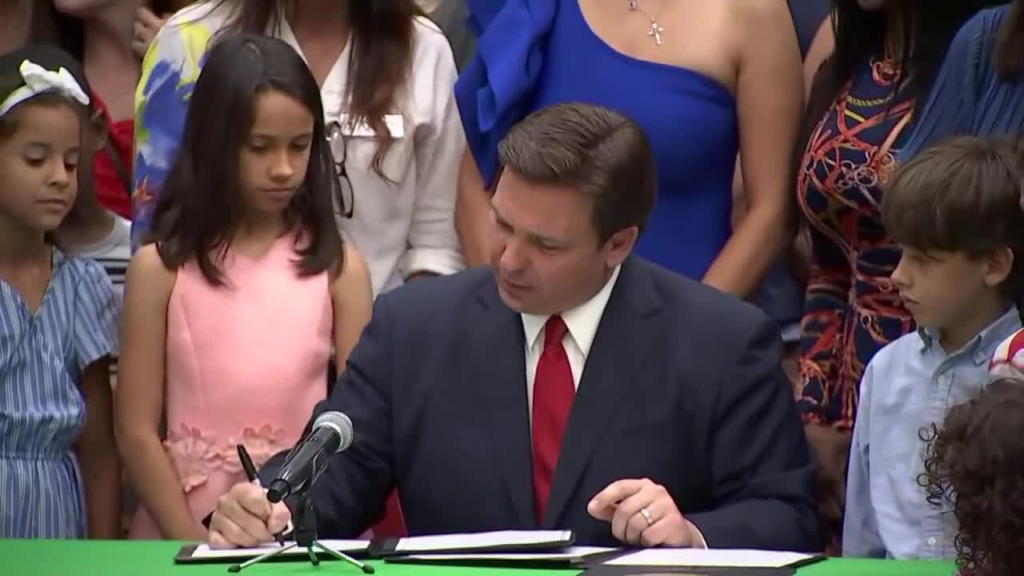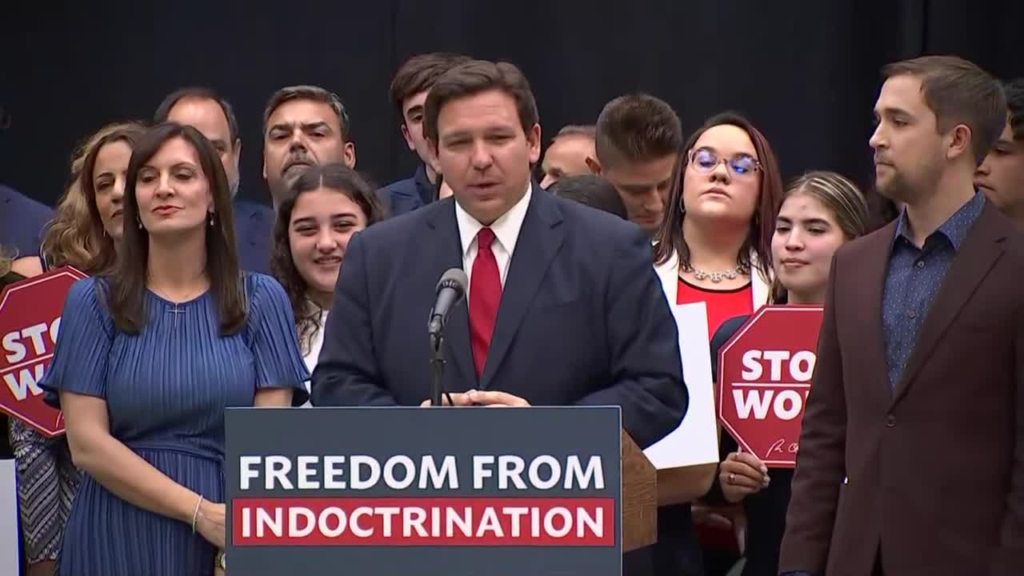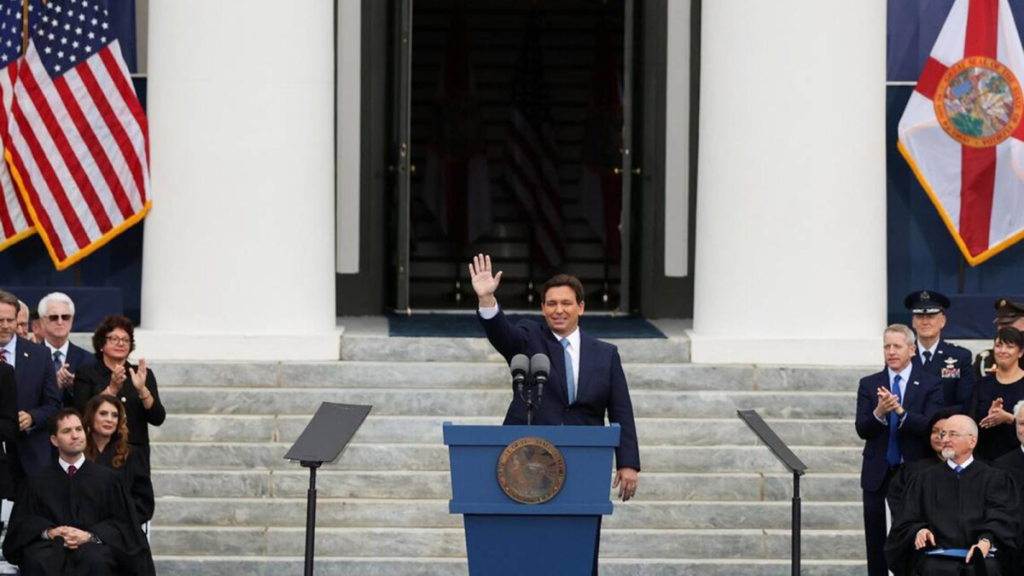In a move that has sparked heated debate across the United States, Florida has implemented a controversial ban on critical race theory (CRT) and diversity, equity, and inclusion (DEI) programs in its public colleges and universities. Signed into law by Governor Ron DeSantis, this legislation has ignited a wave of lawsuits from faculty unions, who argue it infringes on academic freedom and stifles open discourse. The clash has drawn national attention, raising questions about the balance between state oversight of education and the rights of educators to teach complex historical and social issues.

The Legislation: What Does It Entail?
In May 2023, Governor DeSantis signed House Bill 999 (HB 999) and Senate Bill 266 (SB 266), which prohibit Florida’s public colleges and universities from funding or offering programs related to critical race theory, gender studies, or DEI initiatives. The laws also restrict general education courses from including content that “distorts significant historical events” or teaches “identity politics” based on theories suggesting systemic racism, sexism, or oppression are inherent in U.S. institutions. According to DeSantis, these measures aim to eliminate what he calls “woke indoctrination” and refocus higher education on “true academics” grounded in Western civilization.
The legislation goes further by empowering university boards of trustees, often appointed by the governor, to review faculty tenure and hiring processes without interference from unions or faculty committees. This has raised concerns about political influence over academic decisions, with critics arguing it could lead to censorship and the suppression of diverse perspectives.
The University of Florida, for instance, complied with the new regulations by eliminating all full-time DEI positions in early 2024. This move was met with condemnation from the university’s faculty union, which stated it ignores Florida’s history of discrimination and undermines efforts to create inclusive campuses.
Faculty Unions Push Back
Faculty unions across Florida have responded swiftly, filing lawsuits to challenge the bans. The American Civil Liberties Union (ACLU) of Florida, alongside the NAACP Legal Defense Fund and law firm Ballard Spahr, has led legal efforts to block enforcement of the Stop W.O.K.E. Act (HB 7), a related 2022 law that also restricts CRT in schools and workplaces. In 2023, a federal appeals court ruled that the Stop W.O.K.E. Act violated the First Amendment when applied to colleges, businesses, and employers, citing its restrictions on free speech. Despite this, the broader bans under HB 999 and SB 266 remain in effect, prompting further legal battles.
The United Faculty of Florida, representing thousands of educators, argues that these laws create a “chilling effect” on academic freedom. Union President Meera Sitharam, a computer science professor, has criticized the legislation for weakening faculty tenure and pressuring institutions to promote conservative viewpoints. “These laws are not just about banning specific topics—they’re about controlling what can be discussed and who gets to teach,” Sitharam said in a statement to NPR. The union contends that the vague language of the laws allows administrators to arbitrarily censor courses and research, discouraging educators from addressing race, gender, or inequality.
A notable case involves New College of Florida, where DeSantis appointed conservative allies to the board of trustees in 2023 to transform the institution into a “bastion of conservatism.” Faculty and students have since filed lawsuits alleging free-speech violations and academic censorship, with the U.S. Department of Education investigating claims of disability discrimination under the new regime.

The Broader Context: A National Trend
Florida’s actions are part of a broader wave of Republican-led efforts to curb CRT and DEI programs in education. At least eight states, including Texas and North Dakota, have passed similar laws since 2021, according to Education Week. These measures often cite the 2023 Supreme Court decision banning race-based admissions in colleges as legal justification, arguing that educational institutions must avoid practices that “separate or segregate” based on race.
Nationally, the Trump administration has also taken aim at DEI, issuing a 2025 memo giving schools two weeks to eliminate diversity initiatives or risk losing federal funding. This has intensified debates about the role of race and identity in education, with critics like Jonathan Fansmith of the American Council on Education warning that such policies create “a sense of risk” for campuses striving to foster inclusivity.
In Florida, the bans have led to tangible changes. For example, the state rejected an Advanced Placement (AP) African American Studies course in 2023, citing its inclusion of topics like intersectionality and Black queer studies. The College Board, which develops AP courses, faced backlash for revising the curriculum to comply with Florida’s restrictions, with civil rights advocates like Kimberlé Crenshaw arguing it undermines the teaching of Black history.
Supporters and Critics: A Polarized Debate
Supporters of the bans, including DeSantis, argue they protect students from ideological bias and ensure education focuses on merit and historical accuracy. At a 2023 news conference, DeSantis stated, “We want to get rid of political window dressing and focus on civil discourse.” Proponents claim CRT and DEI programs promote divisive concepts that unfairly categorize individuals based on race or identity.
Critics, however, argue the bans oversimplify complex issues and erase critical perspectives on America’s history. Andrew Spar, president of the Florida Education Association, told PolitiFact that CRT is a law-school concept not taught in K-12 schools, and its prohibition in higher education has led to the cancellation or scaling back of valuable courses. The NAACP has also criticized the bans, stating they weaken academic freedom and prevent students from learning about the contributions of Black Americans.

The controversy has practical implications for students and faculty. At Florida International University (FIU), for instance, DEI programs have implemented “diversity statements” for faculty hiring, which some critics, like those at Fox News, argue enforce ideological conformity. Meanwhile, students worry about the loss of affinity groups and support systems, with fears that Black sororities, Latinx organizations, and even veterans’ groups could be affected.
The Road Ahead: Legal and Cultural Implications
As lawsuits progress, the outcome could set a precedent for how states regulate academic content. The ACLU and other groups remain optimistic, pointing to court rulings that have blocked similar restrictions in Florida and elsewhere. However, the broader cultural impact is already evident, with educators reporting self-censorship to avoid violating vague laws. A 2023 CNN report noted that Florida’s restrictions led to the revision of a lesson on Rosa Parks, removing references to race as the reason for her arrest, highlighting the confusion and fear these laws create.
For now, Florida’s public colleges are navigating a fraught landscape. Faculty unions continue to fight for the right to teach diverse perspectives, while the state doubles down on its conservative education agenda. As the debate unfolds, the nation watches closely, aware that the outcome could shape the future of higher education across the U.S.
For more information on the legal challenges, visit the ACLU of Florida’s website. To understand the national context, read about the Trump administration’s DEI memo. For a deeper dive into critical race theory, check out this New York Times explainer.
Also know :- Measles Cases Surge in 15 U.S. States Amid Anti-Vaccine Misinformation Campaigns






